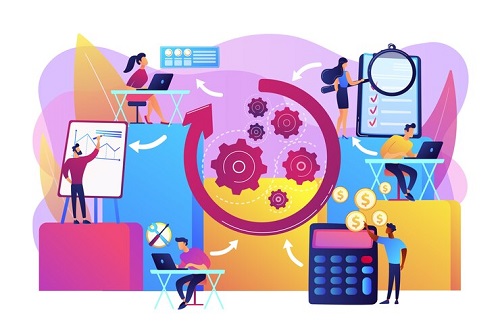In today’s fast-paced and dynamic business landscape, technology plays a pivotal role in driving innovation and transformation. Among the most influential technological advancements are Artificial Intelligence (AI) and Machine Learning (ML), which have revolutionized the way businesses operate, make decisions, and interact with customers. The intersection of technology and business has led to unprecedented opportunities for growth and efficiency, with AI and ML at the forefront of this evolution.
AI and ML technologies have significantly impacted various aspects of business operations, ranging from customer service and marketing to supply chain management and financial forecasting. These innovations have enabled businesses to automate repetitive tasks, analyze vast amounts of data, and make informed decisions based on predictive analytics.

One of the key areas where AI and ML have made a profound impact is in automation. By leveraging these technologies, businesses can streamline processes, reduce human error, and improve overall efficiency. Tasks such as data entry, customer support, and inventory management can now be automated, allowing employees to focus on more strategic and value-added activities.
Moreover, AI and ML have transformed the way businesses interact with their customers. Through the use of chatbots and virtual assistants powered by AI, companies can provide personalized and efficient customer service around the clock. These technologies can analyze customer inquiries, provide relevant information, and even anticipate customer needs, leading to enhanced customer satisfaction and loyalty.
In addition to automation and customer interaction, AI and ML have revolutionized predictive analytics, enabling businesses to make data-driven decisions with greater precision and accuracy. By analyzing historical data and identifying patterns, these technologies can forecast market trends, optimize inventory levels, and even predict customer behavior. This invaluable insight empowers businesses to adapt to changing market conditions and stay ahead of the competition.
Furthermore, AI and ML have had a profound impact on supply chain management. These technologies enable businesses to optimize inventory levels, improve demand forecasting, and enhance logistics efficiency. By leveraging AI and ML algorithms, companies can identify potential bottlenecks in the supply chain, mitigate risks, and ultimately reduce costs while improving overall operational performance.
The integration of AI and ML into business operations has also paved the way for innovative products and services. From personalized recommendations in e-commerce to advanced fraud detection in financial services, these technologies have enabled businesses to deliver enhanced value to their customers while staying ahead of market trends.
In conclusion, the intersection of technology and business has led to remarkable innovations in AI and ML, transforming the way companies operate, make decisions, and engage with customers. As these technologies continue to evolve, businesses across various industries will have the opportunity to harness the power of AI and ML to drive growth, efficiency, and competitive advantage.
In this dynamic era of technological advancement, businesses that embrace AI and ML will undoubtedly position themselves for success in the ever-evolving global marketplace.


